Text
The issue isn't that Biden abandoned the working class four years ago, but that the party did thirty years ago. All these policies are great. They are good things! But there was a time when these sorts of policies wouldn't be extraordinary. In the '80's a caucus within the party calling themselves the New Democrats started pushing neoliberalism. After 1988 they succeeded in taking over the party establishment. Bill Clinton famously adopted Republican positions on most "bread and butter" policies. At the time the "centrist" talking heads called it brilliant, taking away the Republicans' ability to distinguish themselves from Democrats. I would call it surrendering. The party leadership said, "Republicans are basically right about most policies, so let's deregulate, privatize, and 'end welfare as we know it.'" The Democrats abandoned the ideals of the New Deal and Great Society and became compassionate conservatives, a bit less extreme than the Republicans and without all the bigotry and evangelical puritanism.
There was a time when Medicare for All was a plank in every Democratic platform. Now we are told it "will never, ever come to pass." Under Obama, "too big to fail" explicitly became "too big to prosecute." There's a reason people who remember the '90's and Shrubby accepted the common wisdom that the parties were basically the same. There really was a time when the parties argued over more than civil rights. The Democrats did abandon the working class. Biden fell far short of proposing anything as ambitious as the Great Society or New Deal. If these things are not feasible in today's political climate, it's in part because the Democratic party officially rejected economic justice decades ago. One term with a few nice projects can't undo thirty years of serving the Wall Street. The fact remains that my grocery bill is significantly higher than it was in 2019, and my income isn't.
And for the record, I voted for Harris, and Biden, and H. Clinton, and Obama, etc. I have no tolerance for informed people who vote third party or don't vote at all.


dropping this here
9K notes
·
View notes
Text
Well this makes me feel old. Surely this is more some millennials feeling nostalgic than actually trying to explain alien concepts to kids. Although, recently when I asked a young clerk where the phone cords were he hesitated, clearly confused, before he figured it out, "you mean old fashioned telephones."
Have been thinking a lot lately about how, when a new technology emerges, people who were born after the shift have trouble picturing exactly what The Before was like (example, the fanfic writer who described the looping menu on a VHS tape), and even people who were there have a tendency to look back and go "Wow, that was... wild."
Today's topic: The landline. A lot of people still have them, but as it's not the only game in town, it's an entirely different thing now.
(Credit to @punk-de-l-escalier who I was talking to about this and made some contributions)
for most of the heyday of the landline, there was no caller ID of any kind. Then it was a premium service, and unless you had a phone with Caller ID capability-- and you didn't-- you had to buy a special box for it. (It was slightly smaller than a pack of cigarettes.)
Starting in the early nineties, there WAS a way to get the last number dialed, and if desired, call it back. It cost 50 cents. I shit you not, the way you did it was dialing "*69". There's no way that was an accident.
If you moved, unless it was in the same city-- and in larger cities, the same PART of the city-- you had to change phone numbers.
As populations grew, it was often necessary to take a whole bunch of people and say "Guess what? You have a new area code now."
The older the house, the fewer phone jacks it had. When I was a kid, the average middle-class house had a phone jack in the kitchen, and one in the master bedroom. Putting in a new phone jack was expensive... but setting up a splitter and running a long phone cord under the carpet, through the basement or attic, or just along the wall and into the next room was actually pretty cheap.
Even so, long phone cords were pretty much a thing on every phone that could be conveniently picked up and carried.
The first cordless phones were incredibly stupid. Ask the cop from my hometown who was talking to his girlfriend on a cordless phone about the illegal shit he was doing, and his wife could hear the whole thing through her radio.
For most of the heyday of the landline, there was no contact list. Every number was dialed manually. Starting in the mid-eighties, you could get a phone with speed dial buttons, but I cannot stress how much they sucked, because you had to label them with a goddamn pencil, you only had ten or twenty numbers, reprogramming them was a bitch, and every once in a while would lose all of the number in its memory.
All of the phone numbers in your city or metro area were delivered to you once a year in The Phone Book, which was divided between the White Pages (Alphabetic), the Yellow Pages (Businesses, by type, then alphabetic), and the Blue Pages (any government offices in your calling area (which we will get to in a moment)).
Listing in the white pages was automatic; to get an unlisted number cost extra.
Since people would grab the yellow pages, find the service they need, and start calling down the list, a lot of local business names where chosen because they started with "A", and "Aardvark" was a popular name.
Yes, a fair chunk of the numbers in it were disconnected or changed between the time it was printed and it got to your door, much less when you actually looked it up.
One phone line per family was the norm.
Lots and lots and LOTS of kids got in trouble because their parents eavesdropped on the conversation by picking up another phone connected to the same line.
A fair number of boys with similar voices to their father got in trouble because one of their friends didn't realize who they were talking to.
And of course, there were the times where you couldn't leave the house, because you were expecting an important phone call.
Or when you were in a hotel and had to pay a dollar per call. (I imagine those charges haven't gone away, but who pays them?)
Since you can't do secondary bullet points, I'll break a couple of these items out to their own lists, starting with Answering Machines.
these precursors to voicemail were a fucking nightmare.
The first generation of consumer answering machines didn't reach the market until the mid-eighties. They recorded both the outgoing message and the incoming calls onto audio cassettes.
due to linear nature of the audio cassette, the only way to save an incoming call was to physically remove the cassette and replace it with a new one.
they were prone to spectacular malfunction; if the power went out, rather than simply fail to turn back on, they would often rewind the cassette for the incoming messages to the beginning, because it no longer knew where the messages were, or how many there were.
Another way they could go wrong was to start playing the last incoming call as the outgoing message.
Most people, rather than trying to remember to turn it on each time they went out and turn it off when they got back, would just leave it on, particularly when they discovered that you could screen incoming calls with it.
Rather a lot of people got themselves in trouble because they either didn't get to the phone before the answering machine, or picked up when they heard who was calling, and forgot that the answering machine was going-- thus recording some or all of the phone call.
Eventually the implemented a feature where you could call your answering machine, enter a code, and retrieve your messages. The problem was that most people couldn't figure out how to change their default code, and those that did didn't know it reset anytime the power went out. A guy I went to college with would call his ex-girlfriend's machine-- and her current boyfriend's-- and erase all the messages. He finally got busted when she skipped class and heard the call come in.
And, of course, there's the nightmare that was long-distance.
Calls within your local calling area were free. (Well, part of the monthly charge.) This usually meant the city you lived in and its suburbs. Anything outside this calling area was an extra per-minute charge.
This charge varied by time of day and day of the week, which made things extra fun when your friend on the west coast waited until 9pm for the lower charges, but you were on the east coast and it was midnight.
Depending on your phone company, and your long distance plan, the way your long distance work varied wildly. Usually in-state was cheaper-- with zones within the state that varied by price, and out of state had its own zones.
Your long distance plan came in lots and lots of distracting packages, and was billed to your phone bill.
At one point, when I was living in North Carolina, a scammer set themselves up as a long distance company and notified the phone company that a shitload of people had switched to their service. They got caught fairly quickly, but I was annoyed because they were actually charging less than AT&T.
"Would you like to change your long distance plan" was the 80's and 90's equivalent of "We have important news about your car insurance."
Had a friend who lived at the edge of a suburb in Birmingham, and for her to call her friend two miles down the street was long-distance, because the boundary of the calling area was right between them.
13K notes
·
View notes
Text
via 2rawtooreal2
-
NEVER THROW YOUR VOTE AWAY!
(captions added by me)
20K notes
·
View notes
Photo

I know it’s not hard to point out reactionaries hypocrisy when it comes to like safe spaces or hug boxes or whatever but genuinely how much of an echo chamber do you have to exist in for you to think this is a reasonable thing to say
306K notes
·
View notes
Text
Charles III took the throne in September of 2022, presently sixteen months and a couple of weeks ago. Edward VIII didn’t quite manage the full year of 1936. Even he’s not the shortest, depending on how exactly one defines a “king in English history.” This is just trivia and doesn’t really matter, but if one’s vigilant about even little things like this, one may be less likely to fall for deliberate disinformation. Also, well, look at my username.
If King Charles dies on or before March 25th, 2024, he will technically be the shortest-reigning king in English history.
Anyway, like to charge, reblog to cast.
#history#pedantry#hA#Charles III#British monarchy#british history#English history#disinformation#trivia
111K notes
·
View notes
Photo
Maybe ghosts cannot see sunlight. As a deity the sun is often associated with life. Ghosts can see the light reflected all around them, just as we do, except maybe in mirrored surfaces. The sky however is darker than the night sky, and the sun is just a big black spot. Moonlight, however, is very bright for them. So maybe Danny can stargaze at high noon.

The call of the Void.
[CLICK THE IMAGE TO REVEAL!]
Prints of the Light and Dark versions available on my Redbubble and viewable under the cut for the folks in dark mode vvv
Seguir leyendo
11K notes
·
View notes
Text
Ah, but here, "to appease conservatives," we see a fundamental misunderstanding of what conservatism is. All the talk about "fiscal responsibility" is just a way to justify hierarchies. That's why they have ignored all the economic arguments for universal healthcare for decades. They want poor people and marginalized people and dependent people and homeless people. As someone once put it, even the meanest, poorest, illiterate junkie white guy living in and out of jail can say to himself, "at least I'm not a [c***, n*****, f*****, s***, take your pick]. He may be low on ladder, but he's not on the bottom rung. Why would conservative men want abuse victims to be able to leave their abusers? Right now some of the United States are trying to outlaw normal hormonal birth control as an "abortifacient." Sadly, at least in the U.S., the class war isn't purely economic.
I've been rolling something around in my head.
If everyone receives Minimum Basic Income, what happens to all the relationships where one of the individuals no longer has to depend on the other(s) to survive?
Just let that marinate for a moment.
Not just the economic landscape but the social landscape could be transformed.
56K notes
·
View notes
Text
If only it still got crisp in the fall.



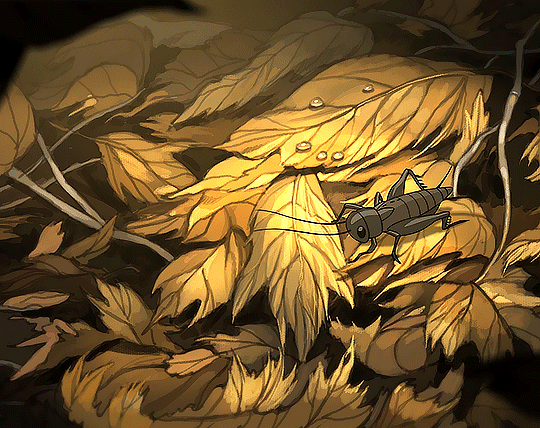
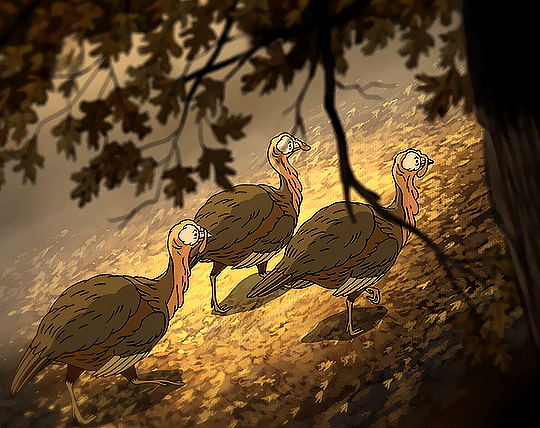
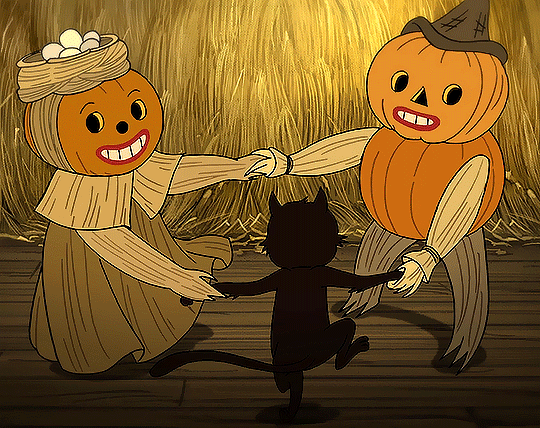
"Life starts all over again when it gets crisp in the fall."
33K notes
·
View notes
Text
I have nothing to add.
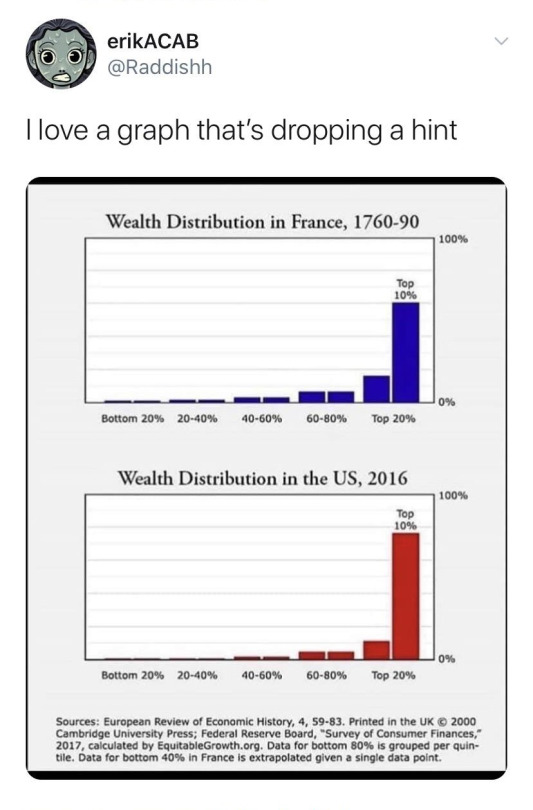
55K notes
·
View notes
Text
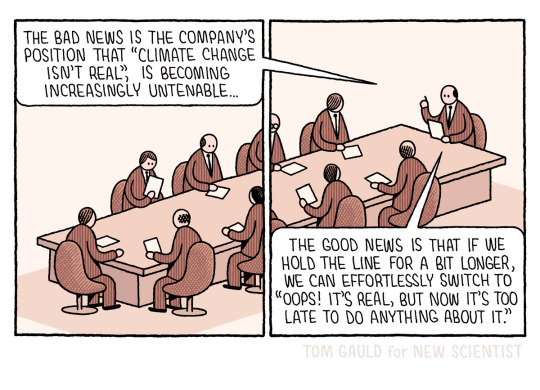
My latest cartoon for New Scientist
48K notes
·
View notes
Text
A housewife takes a lover during the day, while her husband is at work. Not aware that 9 year old son was hiding in the closet. Her husband came home unexpectedly, so she hid her lover in the closet. The boy now has company.
Boy: ‟Dark in here.” Man: ‟Yes it is.” Boy: ‟I have a baseball.” Man: ‟That’s nice.” Boy: ‟Want to buy it?” Man: ‟No, thanks.” Boy: ‟That’s my dad outside.” Man: ‟How much did you say the baseball was again?” Boy: ‟$250.”
In the next few weeks, it happens again that the boy and the mom’s lover are in the closet together.
Boy: ‟Dark in here.” Man: ‟Yes, it is..” Boy: ‟I have a baseball glove.” Man: ‟That’s nice.” Boy: ‟Want to buy it?” Man: ‟No, thanks.” Boy: ‟I think I just remembered something I needed to tell my dad.” Man: ‟How much did you say the glove was again?” Boy: ‟$750.” Man: ‟Fine.”
A few days later, the father says to the boy, ‟Grab your glove. Let’s go outside and toss the baseball!” The boy says, ‟I can’t. I sold them.” The father asks, ‟How much did you sell them for?” The son says, ‟$1,000.” The father says, ‟It’s terrible to over-charge your friends like that. That is way more than those two things cost. I’m going to take you to church and make you confess.”
They go to church and the father alerts the priest and makes the little boy sit in the confession booth and closes the door.
The boy says, ‟Dark in here.” The priest says, ‟Do not start that shit again.”
61K notes
·
View notes
Text
That has always been true of all industries. One of the main reasons modern police forces were formed in the U.S. was to fight labor movements. Though slavery is (mostly) illegal, the ruling class wants most Americans to be slaves in all but name.
I - don’t think the actors/writers strike is about money.
Hear me out.
It’s about money to the actors/writers. And it will be decided by money. But the money isn’t the reason the entertainment companies are going so hard about this and being so tyrannical and mustache twirling. As has been pointed out on multiple fronts, what the actors and writers are asking for isn’t really going to put that much of a dent in what the entertainment companies have been making.
This is about control.
It’s about control of how the future of the entertainment field will go but even more than that?
I think this is about a very small group of people being determined to keep control of a vast amount of people. I think this is about that small group of people realizing that if they give in to the demands of the workers, the workers will have taken the control of how the entertainment industry is going to work from that point on away from them. That small group of people will no longer have a dictatorship position of unchallenged power, able to do whatever they want to whoever they want without consequences. These are tyrants of companies instead of countries but the core basics in just about every aspect is the same including in some cases the amount of people they have dominion over. If the CEOs agree to give in to the demands of the workers, they will have lost their power over them and over the future of how entertainment is run. And I think that’s why this is such a huge deal to them and why they’re being so completely intractable and slamming down every attempt to get them to bend even the smallest amount. It’s why they’re so vocal about their intentions of crushing this rebellion against their lordship completely. This isn’t about appeasing the stockholders. This is about maintaining control so that they can continue to rule like the despots they think they are.
But like I said, I think money will decide this. Because the shareholders aren’t interested in ruling over the peons. They’re interested in making money. And, at the end of the day, the tyrants may be able to convince them in the short term that refusing is in their best interest but once the companies start losing money - or even looking like they’re going to start losing money - the shareholders will force the CEOs to capitulate. And the CEOs, who like to think they’re untouchable, will have to either do what their masters say or be replaced with someone that will. So the CEOs are on a time limit, and they know it. They need to break the unions before the shareholders stop trusting them and start worrying about the companies bleeding money. If the unions can hold out until the companies start losing money and the shareholders decide that’s not acceptable, the CEOs will have to surrender. But right now, the CEOs are counting on breaking them before that and they’re doing it, not for the money, but for the control.
I’m not in the entertainment industry. I sure as heck don’t know any CEOs personally. I’m just spitballing here. But the creatives are asking for so little I just can’t find any other reason that the entertainment industries are being so openly brutal and not even trying to hide their villain level approach in such a public venue instead of just quietly negotiating and giving into most of the very reasonable demands that wouldn’t even put that much of a dent in the end profit. So it can’t be about money.
It’s the control of the future of the entertainment industry and how its going to run.
90 notes
·
View notes
Text
This is really good.
Savit-e
My host mother is a woman with long twirling hair and more floral-patterned sundresses than I’ve seen in my entire life. She throws open the closet each morning to flick each dress along its hanging rail, sharp squeaks. “What can I even wear?” The dresses sway like summer willows. I sneak in behind her and grab a t-shirt and jeans from my tiny pile at the bottom.
She loves earrings that swing and she loves stain-glass windchimes which clink and muse while she pours me the bitterest cup of tea I’ve ever had in my life. I fill it with sugar and she chides me. I remind her of all the spicy dishes I make that she cannot eat, and she says, “Okay, I’ll let it go this one time.” She sips her tea black. The birds titter at her joke. We’ll have the same conversation tomorrow.
My host mother is Jira and I wonder how closely we might be related every time I catch that glimmer in her eyes like my mothers’. Jira is too tall to be my mother and her hair is not quite dark enough, but I like to believe I see it. I like to believe Jira’s country and mine are related, that maybe her great-great-grandparents and mine were friends before the records were scorched and the lines were redrawn. Or maybe our countries bore no relation to each other. Maybe they were friends anyway. Maybe they were enemies. I’ve heard every opinion.
Jira has a worry-face like my mother, but she uses it for different things, like plum prices at the market and rain clouds blundering through like clumsy creatures. It used to surprise me, since my mother reserved her worry-face for only the dourest things in her mind. I saw more and more of it from my mother before I left. “Baby maybe you should spend the summer home. Maybe you can get your money back.” She said she’d been reading things in the news. I told her not to worry. I would be safe in my travels. I feel stares pressing into my back while Jira leans over the plums. I notice Jira receives the stares too.
She hums a tune and busies herself in the kitchen in a dress I’ve never seen. She’s been in a great mood since her daughter came home this morning. I didn’t get a good look at her daughter at first because Jira swallowed her right up in her arms. But I got to see her better when I helped bring her bags in. Savine is lithe, baby-faced and a head shorter than Jira, and her eyes carry the same arch and slope as Jira’s. She has the same dimples and she moves in the same way, tilted forward, as if to let gravity do the work of carrying her momentum.
Savine is napping from her trip, and Jira seems to have forgotten all the slow and patient syllables she usually saves for me. She speaks in her rapid pace and I jog to keep up. Too many words slip through my grasp. One in particular I hear too many times. Savit-e.
“Savit-e?” I ask.
Jira puckers her lips as if to think. Her eyes rove. Footsteps tap gently closer behind me, and Jira’s eyes light up as she looks past me.
“Savit-e!” she says, motioning forward as Savine rounds the counter and pulls her mom into another hug. Savine is only 10. She’s been away almost 6 months for school, according to Jira.
A nickname, I note. Savine wears earrings like windchimes as well.
…
Jira has offered to charge me no rent if I babysit Savine for the summer and cook dinner in the evenings. Savine’s summer classes are early and short, as are mine, so I pick Savine up every day at noon. “This is Reb. She’s my mom’s friend this summer,” Savine tells her school friends. I gather that Jira does something similar every year, taking in an au pair while she works the summer.
There is a park Savine likes in particular, with the tall slides and the cold water fountains and all her friends. It takes me a few days to realize her friends are new to even her. Any child at the park becomes her friend by nature of needing two to play the teeter-totter. I meet parents and I practice my clumsy language with them. They don’t stare strangely at me like the man in the plum aisle.
Three times over the summer, I hear a parent at the park ask me. “Who is Savit-e?” I point to Savine every time. I don’t think too much about it, because they always like the answer, nodding along. Savine’s friends do not use the nickname, but I experiment with it here and there. Savine lights up when I do. “Savit-e,” I call to her from the school lawn, and she squeals and bounds forward to wrap me in the kind of hug she gives her mother.
I pick up a copy of the newspaper from the corner store every day on my way to pick up Savine, and I read what I can of it at the park. The newspaper is not a person, and it does not stilt its vocabulary to be simple and clear the way people do when they notice me struggling with the tongue, so oftentimes I gather just the concepts from articles. It is my fourth week of doing this when one article stops me. I see the spelling of what Jira says out loud so often.
Savit-e.
The article is hard, but I recognize the word for murder, and the words for three men. Three men murdered, and Savit-e. I would ask Savine, but I’m afraid the article may be something upsetting.
I ask Jira that night, after Savine has gone to bed.
“A man killed three others,” Jira says, brow slightly scrunched as she skims the paper and distills its contents to simpler words I know. Her eye creases are deep by the evening lamplight. “He is not charged with a crime, because he was protecting his Savit-e.”
This sinks in slowly, and a red flush of embarrassment makes itself known on my cheeks.
“Savit-e… as in ‘daughter’?”
I use my own word for it, since I don’t know Jira’s word for daughter. Or at least, I did not know, until now.
Jira’s brow scrunch tightens, which she does whenever I’ve used one of my words she doesn’t know.
“Like Savine is to you. Savine is your daughter.”
At this, Jira nods slowly, then more quickly as she lets the meaning sink in. “Yes… Savine is my Savit-e… my daughter.”
I thank Jira for the explanation. I lie awake that night thinking too much about the parents at the park who think Savine is my Savit-e.
…
I start to dislike the newspaper. I’m not sure if it’s the summer heat sewing aggravation, or some deeper unrest, or maybe my own growing vocabulary, but more and more I notice articles that leave me unsettled. I read about the arrest of a man who looks like the man in the plum aisle. Maybe there’s no resemblance at all. Maybe any man with those piercing eyes in a mug shot feels like the man in the plum aisle. There are still many words I don’t know, but country and nation come up often. And Savit-e. More articles of someone acting in protection of their Savit-e.
My mother isn’t here to protect me. I walk more cautiously when I’m alone at night, as a woman, as a Savit-e with no parents here to protect me.
I’m in the kitchen with a knife shunking through the angled cuts of scallion. The pot for the noodles is boiling and I’ve halved the spices as I do every night for Jira and Savine. I don’t even hear the front door kick open.
I do hear Savine scream.
My heart is in my throat and my blood is cold, and I move, because in the moment I have forgotten I am a Savit-e far away from home. All that matters is Savine’s scream.
And my sockless feet are light as I snake through the dining room and round the corner to the living room, entering from the same door as the two men who now stand there, backs to me, both eagerly teasing the handles of a gun. One has Savine in a chokehold, and the men stare at Jira, pressed flat against the wall. I realize Jira does have a worry-face she reserves for the truly awful things.
And the men with their backs to me are plum-men, in ways I understand without knowing what fast and clipped words they’re shouting at Jira. The one holding Savine presses the barrel of his gun against her ear, and the windchime titter of her earrings is drowned under her scream of fear. The plum man barks a demand at Jira, and she watches with moon-plate eyes.
He barks it again.
Jira raises a trembling hand. And her digits curl, and her palm pulls inward, and her earrings clink with the slow stuttering shake of her head. She points her index finger firmly against her own heart, and she declares ‘Savit-e’.
Jira runs out through the second living room door.
“Mooooom! Savit-e!!” Savine screams, and her words choke, and she wriggles under the hold of the man. And suddenly sense returns to my body at the sound of Savine’s screams.
I am still holding the scallion knife.
I don’t remember what I do next, but the knife does.
…
There is a drawl of radio static that seems to dominate my ears. The sirens and flashing lights are background noise to me now. They’ve taken Savine away with a blanket wrapped around her shoulders. They’ve assured me I’ll be able to see her, but later, once she’s been looked at, once she’s calmed down, once I’ve been spoken to.
“You are not in trouble,” the detective tells me in my own tongue with a slight accent rounding her words. She’s the only one who speaks my language. They called her in when it became clear I didn’t know enough of theirs to give a report. “You were protecting your Savit-e.”
I flinch, a little bit, somehow still capable of embarrassment with a mind that’s gone completely numb. “Savine isn’t my Savit-e.”
The woman detective frowns. I remember we’re in my own tongue.
“I mean, she’s not my daughter. She’s Jira’s daughter. She’s Jira’s Savit-e.”
The woman’s frown lessens some. “Your daughter, no. Your Savit-e, yes.”
I hold my hands near my face. They still smell of garlic and scallions. “The pot’s gonna boil over. I have to go turn off the stove,” I say, urgently, and unhelpfully, as the thought suddenly strikes and I push myself standing.
The woman’s hand is on my shoulder, and she presses me down. “The pot is not boil. The stove is off. It is okay. Who is Savit-e?”
And the question sits weird. I realize she asks it like those parents at the park.
I don’t answer. The detective chews her lip, and I see her eyes searching for a word she can’t find. “Who is your… The Most? Who is your The Above? Who is your The Most of All?”
“My most what?”
“Who is your Protect Over Everything?”
And from her face I can tell she is frustrated with her own words. There is more she is saying that I cannot know in my own language.
Protect Over Everything. I think about the scream that pulled me from the kitchen.
“I think… Savine… is my Protect Over Everything.”
And this satisfies the woman. And she nods the way the parents at the park do. “You are not in trouble. You always protect Savit-e. You must always. There is no trouble for what you did. Good job, that you protect your Savit-e. You will have her back soon.”
I go stiff.
“Jira needs her back, not me. I go home in a few weeks. I only started—” I falter. “Savine is Jira’s Savit-e.”
The detective shakes her head. “Jira is Jira’s Savit-e. Jira does not come back.”
…
I postpone my flight home. I tell my mother it’s because my studies are going long. I’ll tell her more, later, when I’m ready.
I pick up Savine every day from school as always. She doesn’t smile, and she pulls me into a hug that is too tight and lasts too long. She doesn’t want to go to the park. She comes grocery shopping with me, because it’s better than being left home alone. I look over my shoulder whenever I grab the plums.
I cook dinner and I eat with Savine, and we do this at the counter because when I sit us at the kitchen table, Savine looks too long at Jira’s empty place. I tried calling Jira once, after Savine went to bed. Her phone rang from the next room. I watched it ring until it cut to voicemail.
There’s an article about me in the paper. I can’t read most of it. Or maybe I just don’t try to. I see Jira’s name. I see the plum man words. I see Savit-e written 14 times.
I don’t know what happens to Savine if I leave. I’ve tried asking and I get too many words I do not know, and no one who can explain them better to me. But their expressions stay with me. Like the looks of plum-men and worry-faces and now this new look, which is rooted in something deeper about a country which I know too little about. It’s a sad look. It’s something I can maybe understand without the words attached. I tell my mom I might like to extend my study through the fall.
Savine has started calling me “Savit-e.”
1K notes
·
View notes
Text
youtube
Annoy a Nazi
This is quite good.
1 note
·
View note
Text
If planets like Coruscant and Taris could survive by importing all their food for trillions of inhabitants, I’m sure a single town could get by. They probably have incredible recycling, fabrication, and repair technologies.
Who feeds Cloud City?
They’re an urban metropolis floating in the sky. Where are the suburbs that bring them food and spacewine? Where do their sanitation pipes lead? Where is the Cloud reservoir that holds their drinkable water? What commerce line passes through Bespin to provide them with clothing and industrial parts to repair their myriad machines? How does such a floating paradise sustain itself?
11 notes
·
View notes
Text
The Day After Christmas

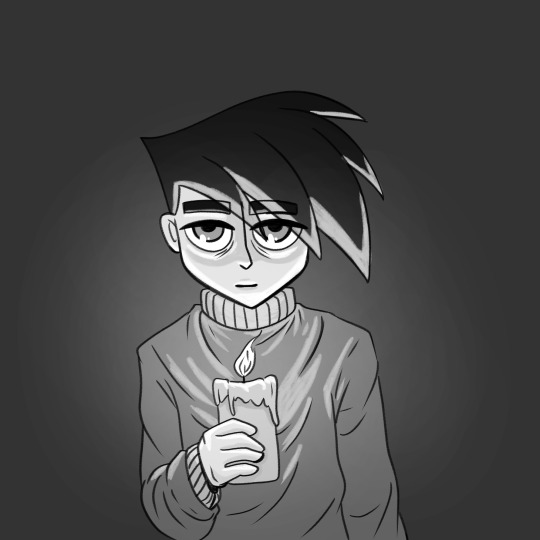





Danny´s favorite day of the holidays.
This marks the day that I change my profile picture back to normal.
More Nonsense? -> DP Shitpost Comic Masterpost
2K notes
·
View notes
